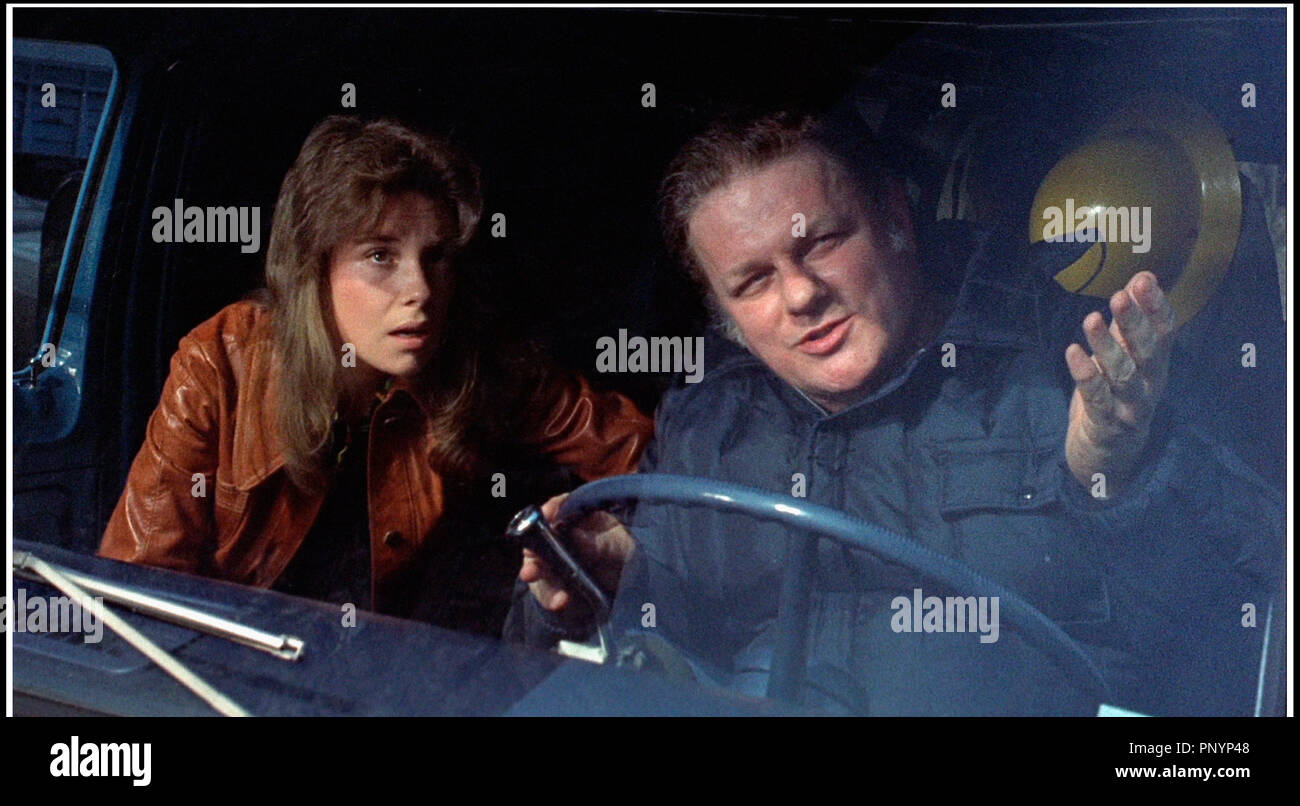← Back to Reviews
in
Sisters (1972)
An early bulls eye from the resume of Brian De Palma is an often chilling psychological thriller from 1972 called Sisters that already shows the Hitchcock influence that would permeate so much of De Palma's work.

Jennifer Salt plays Grace Collier, a rookie reporter for a small Staten Island newspaper who witnesses a brutal murder in an apartment building across the courtyard from hers. The apartment is occupied by an attractive French Canadian model named Danielle (the late Margot Kidder) who brought the victim home with her the night before. Grace calls the police but they are unable to turn up any evidence of a murder, so Grace hires a private investigator (Charles Durning) to help her figure out exactly what happened.

De Palma, even at this early point in his career, is already displaying a definite affinity for creating nail-biting suspense as opposed to the immediate but temporary "boo" which has become the trademark of so many later horror/slasher films. Very subtle clues are offered as to exactly what's going on here and strict viewer attention is demanded, if not always rewarded. My first clue that the victim was in trouble was when he was in the bathroom putting on his shirt and he knocked her pills down the drain. Somehow I knew right then that this guy's death was an inevitability.

De Palma employs a couple of brilliant storytelling techniques here that I didn't see coming at all, particularly the use of the split screen right after the murder. On one side of the screen we see the murder being covered up and the other we see Grace calling the police and meeting them downstairs. This was such a clever tool of De Palma's that forced the viewer to pay attention...it was slightly maddening, but extremely effective.

The screenplay by De Palma and Louisa Rose is a little muddled at times. We are told early on that Danielle has a twin sister named Dominique, but when Grace talks to a doctor (Barnard Hughes) and reveals that Danielle and Dominique were Siamese twins who had been separated, it took the entire story in a disturbing and unsettling direction we don't see coming. De Palma's use of real-life conjoined twins and freaks during the nightmarish sequence where Grace is silenced was a master stroke. I was also troubled by the ambiguity of the ending, leaving a major plot point dangling.

Kidder is surprisingly effective as the damaged Danielle and Jennifer Salt is a commanding screen presence as the energetic Grace. Durning is also a lot of fun as the private eye. Bill Finley scores as Danielle's ex as does Dolph Sweet as the frustrated police detective and if you look close, you might catch future Oscar winner Olympia Dukakis playing a bakery employee. The story has a couple too many holes, but De Palma's storytelling skill allows you to forgive the film's minor problems.
An early bulls eye from the resume of Brian De Palma is an often chilling psychological thriller from 1972 called Sisters that already shows the Hitchcock influence that would permeate so much of De Palma's work.

Jennifer Salt plays Grace Collier, a rookie reporter for a small Staten Island newspaper who witnesses a brutal murder in an apartment building across the courtyard from hers. The apartment is occupied by an attractive French Canadian model named Danielle (the late Margot Kidder) who brought the victim home with her the night before. Grace calls the police but they are unable to turn up any evidence of a murder, so Grace hires a private investigator (Charles Durning) to help her figure out exactly what happened.

De Palma, even at this early point in his career, is already displaying a definite affinity for creating nail-biting suspense as opposed to the immediate but temporary "boo" which has become the trademark of so many later horror/slasher films. Very subtle clues are offered as to exactly what's going on here and strict viewer attention is demanded, if not always rewarded. My first clue that the victim was in trouble was when he was in the bathroom putting on his shirt and he knocked her pills down the drain. Somehow I knew right then that this guy's death was an inevitability.

De Palma employs a couple of brilliant storytelling techniques here that I didn't see coming at all, particularly the use of the split screen right after the murder. On one side of the screen we see the murder being covered up and the other we see Grace calling the police and meeting them downstairs. This was such a clever tool of De Palma's that forced the viewer to pay attention...it was slightly maddening, but extremely effective.

The screenplay by De Palma and Louisa Rose is a little muddled at times. We are told early on that Danielle has a twin sister named Dominique, but when Grace talks to a doctor (Barnard Hughes) and reveals that Danielle and Dominique were Siamese twins who had been separated, it took the entire story in a disturbing and unsettling direction we don't see coming. De Palma's use of real-life conjoined twins and freaks during the nightmarish sequence where Grace is silenced was a master stroke. I was also troubled by the ambiguity of the ending, leaving a major plot point dangling.

Kidder is surprisingly effective as the damaged Danielle and Jennifer Salt is a commanding screen presence as the energetic Grace. Durning is also a lot of fun as the private eye. Bill Finley scores as Danielle's ex as does Dolph Sweet as the frustrated police detective and if you look close, you might catch future Oscar winner Olympia Dukakis playing a bakery employee. The story has a couple too many holes, but De Palma's storytelling skill allows you to forgive the film's minor problems.
